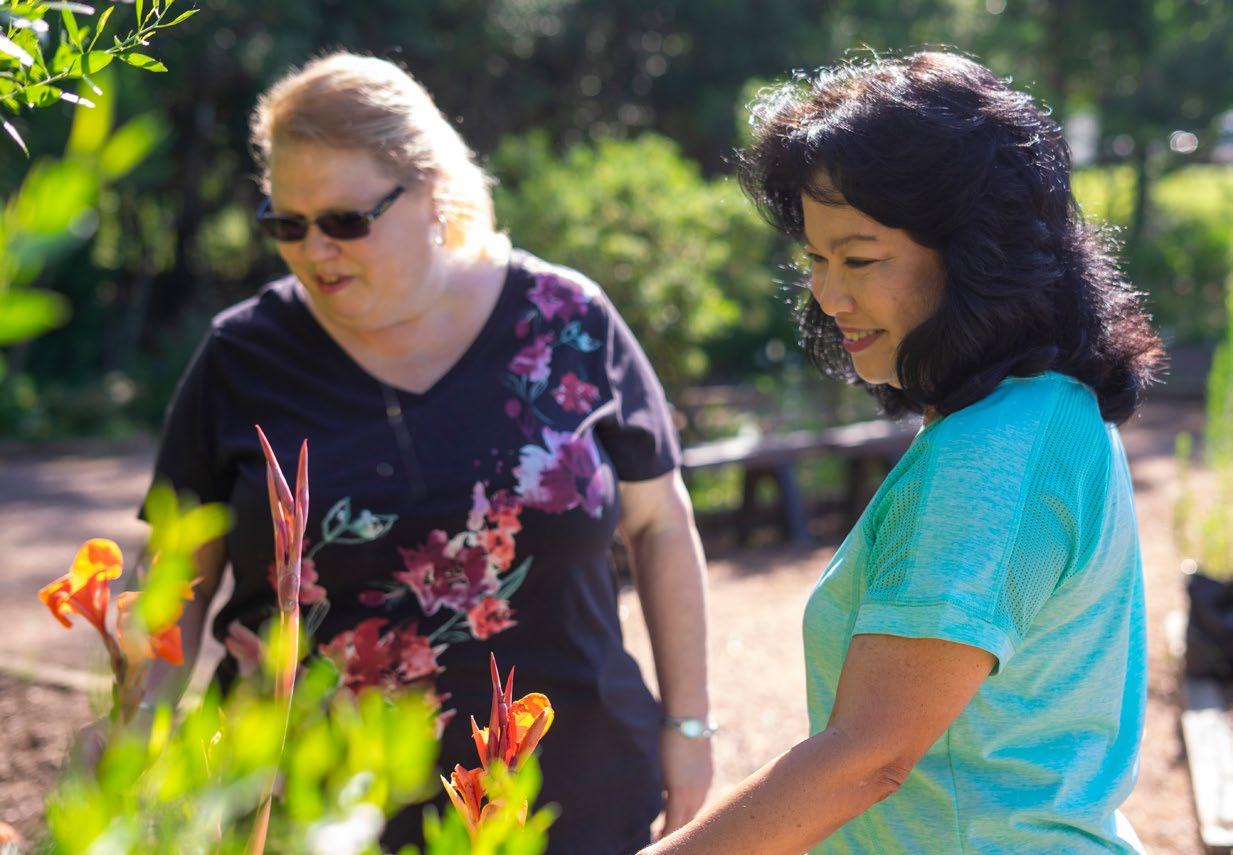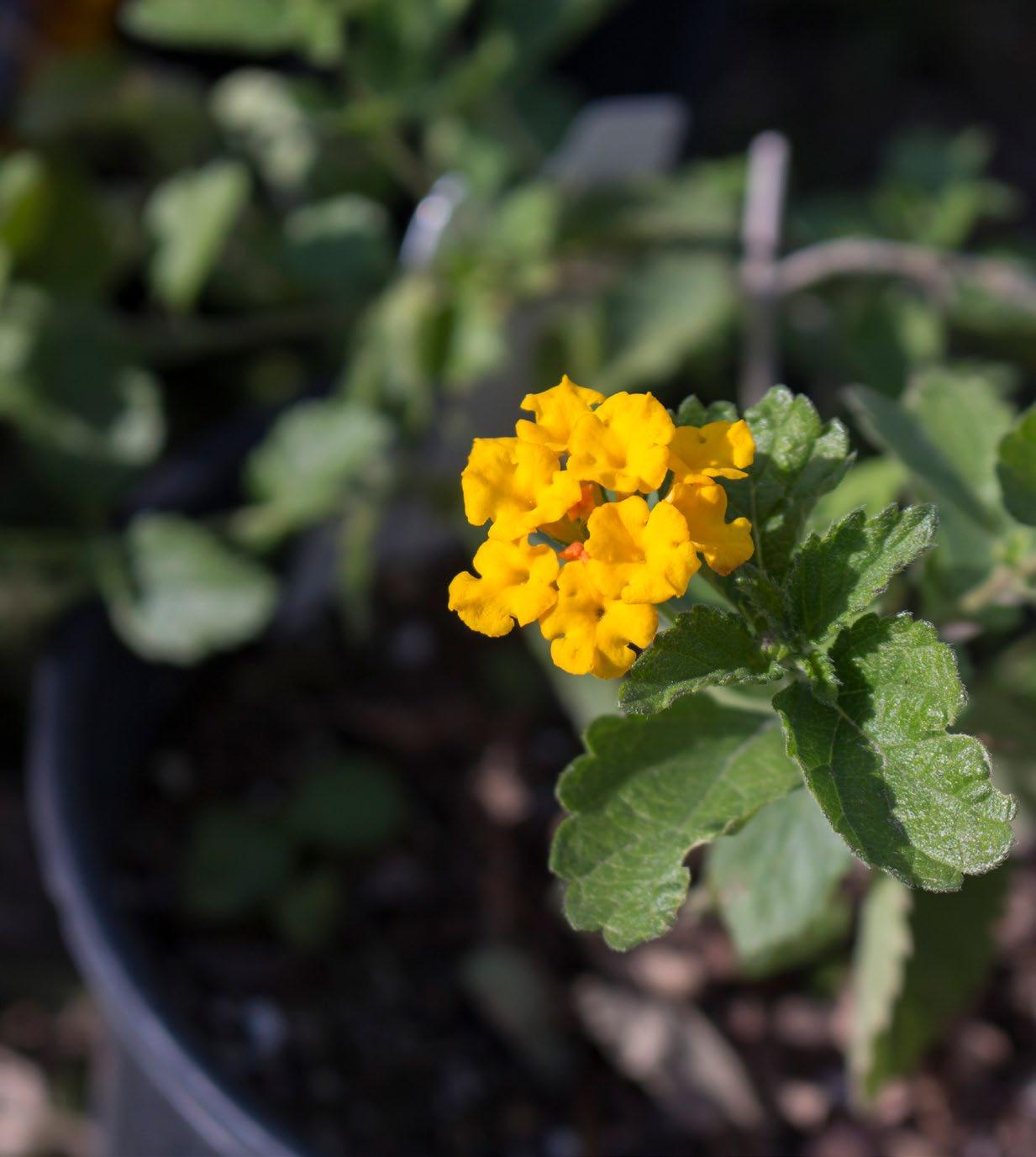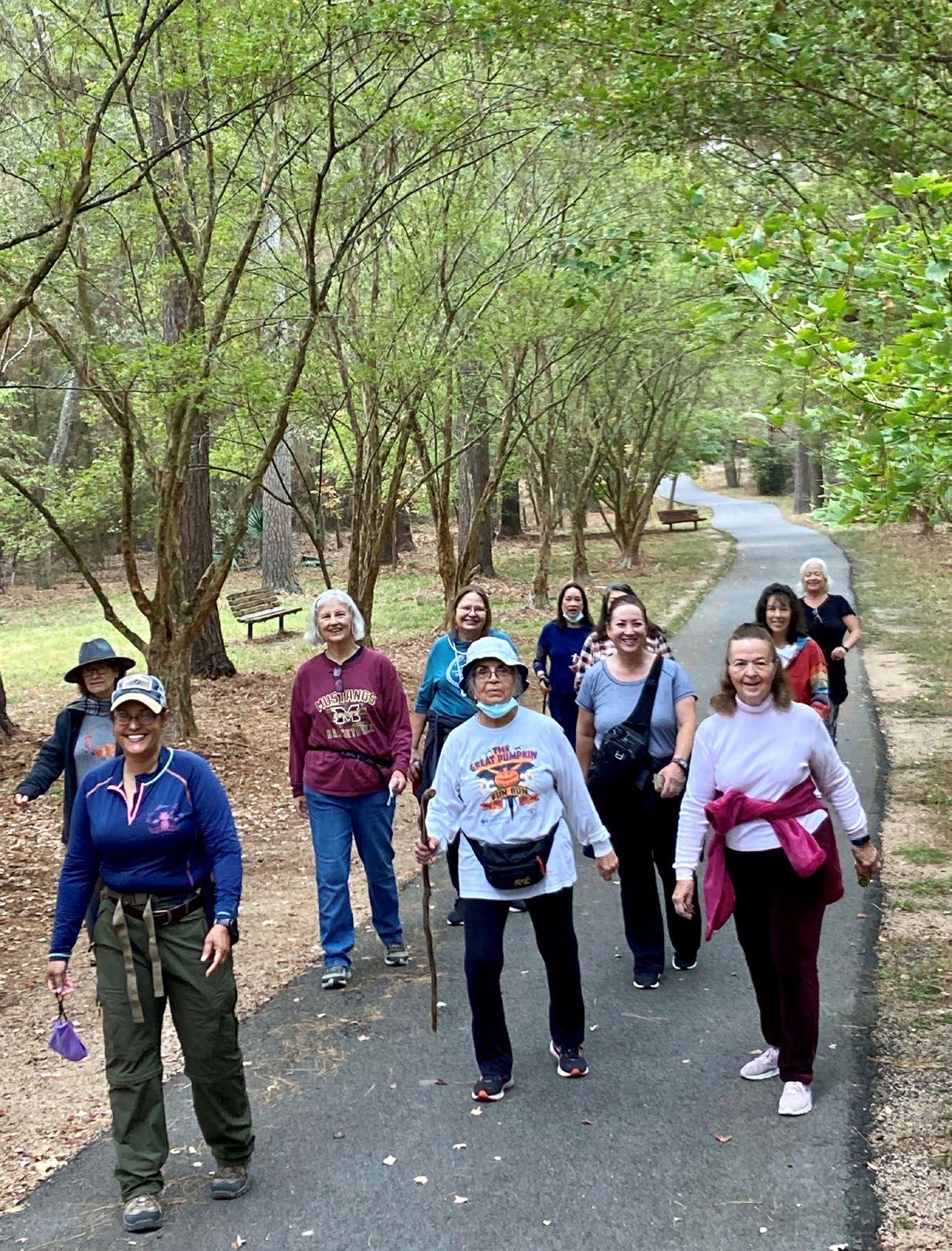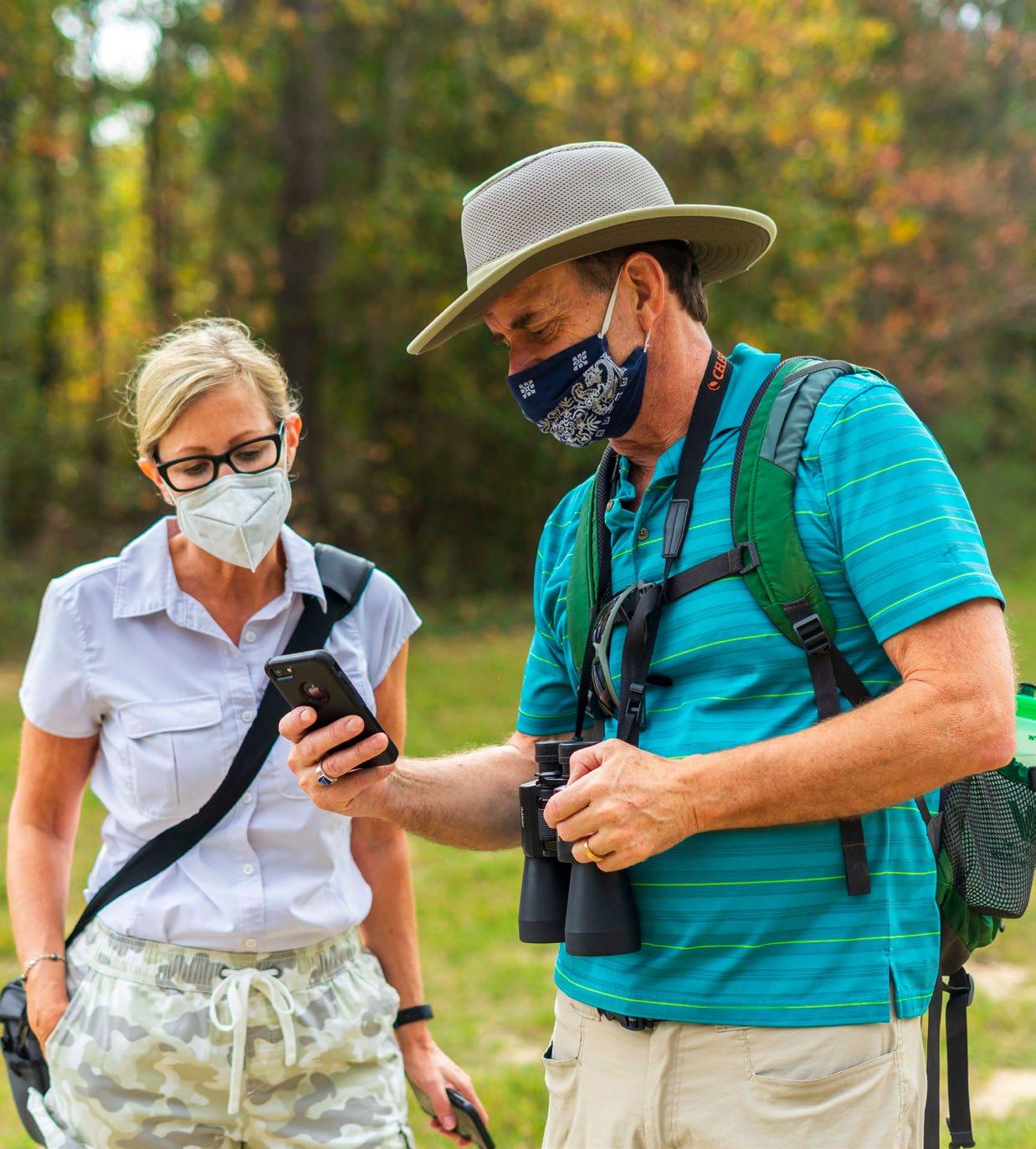
8 minute read
Staying Connected to the Community
story and photos by Crystal Simmons
If 2020 was the year of waiting, then 2021 might be the year of making up for lost time. Many people traded in friends, family, and vibrant social lives last year for a harsh new pandemic-imposed reality at home. But as the year progressed, many began searching for new ways to get out and connect.
Advertisement
Now, with the dawning of the new year, many community groups stand ready to answer that need. Harris County is full of outdoor recreational groups and nonprofits helping residents ignite their passions and make the most of their communities. Here are five of the most active:
BAYOU LAND CONSERVANCY
Nature lovers longing to learn more about the outdoors and conservation will enjoy the educational programs and hands-on volunteer opportunities offered by the Bayou Land Conservancy (BLC).
This nonprofit preserves land for flood control, water quality, and wildlife, and offers outdoor events, environmental education, and volunteer opportunities for children and adults. Participants can go birding, take nature walks or attend cleanups, invasive species removal workdays, and trail maintenance events.
"We work to connect our community to the outdoors by providing the Spring Creek Nature Trail, trails along Cypress Creek and Little Cypress Creek..." says Martinez
One of the best ways to get involved with the organization is through the Spring Creek Greenway Ambassador program. Offered in spring and fall, this free adult education course includes five three-hour classes that prepare participants for monitoring BLC preserves and assuming leadership roles. "You get to learn about local ecology, how to build and maintain trails, and you can visit BLC preserves," says Conservation Director Becky Martinez. "More than anything, it's a program that connects folks to the wild areas along Spring Creek and lets them meet other outdoorsy people."
BLC volunteers also build and maintain natural surface trails on its preserves. Those who like staying active and exploring new areas are encouraged to become trail stewards. "We work to connect our community to the outdoors by providing the Spring Creek Nature Trail, trails along Cypress Creek and Little Cypress Creek, and those in the 100 Acre Woods Preserve," says Martinez. "These are unpaved trails through natural areas that are great for walking, hiking, and birding."
BLC's 14-mile Spring Creek Nature Trail offers four trailheads and unparalleled access to ponds, wetlands, and forests, including a connection to Precinct 4's Burroughs Park.
Martinez encourages guests to visit them online before visiting to download a map and free audio tour with information on local ecology, wildlife, history, and land conservation.
Additionally, BLC works closely with Precinct 4 to bring more outdoor education programs to the public.
When meeting in person, we host our ambassador class orientation at Big Stone Lodge and host environmental education events at Kickerillo-Mischer Preserve," she says. "We have worked with the Trails As Parks folks on nature walks and water activities, as well as partnered with Jesse H. Jones Park & Nature Center during NatureFest and other events."
Learn more at www.bayoulandconservancy.org.

SPRING CREEK EDUCATION SOCIETY AND THE MONARCH PROJECT EDUCATIONAL INITIATIVE
Featuring interactive educational programs and volunteer opportunities, the Spring Creek Education Society and the Monarch Project Educational Initiative are perfect for lifelong learners who want to understand the science and ecology behind Spring Creek's natural phenomena and preserve its natural beauty.
Students of all ages don't just learn about nature; they experience it in the field. Topics include forestry, water quality, greenhouse education, gardening, pedology (the study of soil), and a robust monarch butterfly educational initiative.
Most butterfly education activities occur at the Butterfly and Hummingbird Garden at Precinct 4's Dennis Johnston Park. This certified Monarch Waystation offers visitors a place to study monarchs and other pollinators in their natural habitat and to learn pollinator plant care.
Participants can research and contribute to scientific data through the organization's Monarch Butterfly Research and Conservation Citizen Science Group. Group members meet monthly at Dennis Johnston Park from March through October and submit their findings to organizations, including the Monarch Larva Monitoring Project, Monarch Health, Monarch Watch, and Journey North. "We host biannual spring and fall monarch migration events, which serve as extensive outreach and public education events," says Jennifer Godwin-Wyer, the director of the Monarch Project Educational Initiative. "At those events, we recruit citizen scientists who learn how to tag monarchs, test for OE (ophryocystis elektroscirrha, a parasite that infects and kills monarchs), participate in native plantings, and learn about monarch and pollinator conservation."
The society also offers K-12 public education programs, summer student internships, volunteer opportunities, and scholarships through the educational initiative. Students interested in volunteering through the educational initiative can receive recognition for their work by earning the President's Volunteer Service Award and the Congressional Award in Voluntary Public Service.
The organization is small, so participants have plenty of chances to make an impact. Volunteer opportunities are available to adults and youths, and events and programs are free. "During COVID-19, many of our volunteers are helping to cultivate and grow native milkweed at home, which will be planted in the butterfly garden at Dennis Johnston Park," says Godwin-Wyer. "Our volunteers also help in the greenhouse or help maintain the gardens by planting, weeding, and mulching or replenishing rocked pathways." For more information, visit www.MonarchPEI.org.
THIS PAGE (TOP TO BOTTOM) The Spring Creek Nature Trail in Tomball leads to a variety of wetland habitats. Visitors admire the flowers at Dennis Johnston Park's Hummingbird and Butterfly Garden, built by the Spring Creek Education Society. OPPOSITE PAGE David Nock, a Bayou Land Conservancy volunteer, looks for birds along the Spring Creek Nature Trail.
PLANTMEET HOUSTON -THE GREATER HOUSTON GULF COAST PLANT SWAP
Plantmeet Houston is a group of plant lovers that gets together to give away or swap plants, cuttings, bulbs, and seeds. It is the oldest organized plant swap in Texas, with members trading plants for more than 21 years.
"Members swap plants and seeds, eat, and talk shop," said Wolford.
Plant swaps began in the 1990s, when a group of gardeners that had been swapping plants through the mail decided to meet in person. The group started a Facebook page in 2011 that has helped it grow to more than 2,000 members.
Members meet at Mercer Botanic Gardens in Humble every spring and fall. "Members swap plants and seeds, eat, and talk shop," says group founder Jennifer Wolford. "After everyone is full and swapped out, they go across the street and tour the gardens. No money is exchanged for plants, and nothing is sold. It's all about sharing and/or swapping for something that you want to add to the yard. Everyone is welcome. We are really one big plant family, and it is like a reunion every time we meet."

HOUSTON WOMEN'S HIKING GROUP

Launched in 2016 by Bridgette Mongeon, Houston Women's Hiking Group is a private Facebook group of women who want to explore the outdoors with others. "We have members of all hiking levels, and they are very supportive," says Mongeon. "There is usually a hike almost every day of the week."
Members are encouraged to create hiking events or join others and share their experiences. Hikes occur at parks across the region, including in Humble, Tomball, Katy, North Houston, Spring, Conroe, and the Clear Lake area. Popular destinations in Precinct 4 include the 100 Acre Woods Preserve and Mercer Botanic Gardens. "Houston Women's Hiking page is set up so that if you live in a certain area and want to hike, you can start by posting that," says Mongeon. "See what type of interest you get. If you receive enough, you may want to create an event."
The group offers beginner recovery hikes, all-women camping trips, pet-friendly walks, and "all hikes" open to male hikers who know a member. Mongeon is also working on an annual member picnic once COVID-19 is contained.
"We have members of all hiking levels, and they are very supportive," says Mongeon.
NATURE AND ECLECTIC OUTDOORS
Nature and Eclectic Outdoors (NEO) started in 2013 on Meetup.com as a small group of nature enthusiasts that enjoyed gathering for outdoor activities. Since then, it has grown into a 5,500-member nonprofit offering outdoor activities, volunteer opportunities, and philanthropic programs. "We have a core group of members who regularly participate in activities, lead events, and volunteer in various NEO programs," says Jennifer Boley, NEO's director. "Some members rotate in and out of activities as their schedules permit. Others stay members of NEO to learn about outdoor and nature-related hobbies and venues they may like to explore on their own."
Boley says the group hosts large-scale community events and provides one-on-one activities for more than 2,000 people per year, like nature walks, hiking, camping, backpacking, kayaking, fishing, and astronomy.
Besides outdoor events and activities, NEO also offers several special initiatives for children and those with special needs.
Wilderness Kids works with schools to host environmental education field trips and camps in state and national parks.
"This program promotes park and nature equity as a tool to fight health disparities in underserved communities," says Boley.

Healthy Outdoor Communities expands on the Wilderness Kids program to include families and community members. This initiative works to bring nature and the outdoors to urban communities. Group members work with partner institutions to teach children and families about their local parks and green spaces, teaching them outdoor skills and hobbies, health and nutrition education, literacy programs, and life-skills training. "This program promotes park and nature equity as a tool to fight health disparities in underserved communities," says Boley. "We also have programs that specifically serve veterans and people with special needs. We even have a program that teaches schools and organizations how to develop gardening programs and create and certify Monarch Waystation pollinator gardens, including how to harvest butterfly eggs, raise the caterpillars, and safely release the adult butterflies."
For more information, visit www.neoproject.org.


